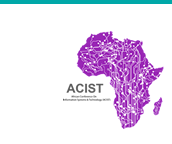Location
Harare, Zimbabwe and Virtual
Start Date
15-9-2023 3:00 PM
End Date
15-9-2023 3:30 PM
Description
Blockchain technologies offer platforming services on which African stokvels can be implemented. stokvels emerged as cooperative and self-help schemes for marginalized communities in South Africa. stokvel members contributing to a blockchain-managed common fund do not have to worry about trusting their peers because transactions on a blockchain are claimed to be transparent and irrefutable. Blockchain technology’s consensus mechanism and its decentralized architecture ensure that authority is shared amongst peers, and none has monopolistic powers over the common fund. The blockchain is thus, at face value, seen as espousing the true spirit of cooperative and participative decision-making akin to African Ubuntu - the value system behind the African stokvel. This article critically analyses the superimposition of blockchain technology on African values-driven systems such as the stokvel. The paper problematizes two assumptions that are often taken for granted - that blockchain technology espouses the values of Ubuntu and that its implementation as an enabling technology for self-help financial schemes such as the African stokvel enhances the values of Ubuntu. The paper contributes to the literature that evaluates the implementation of financial technologies, particularly, blockchain technology in managing the transactions of cooperative self-help schemes in an African setup. It is argued and concluded that blockchain technology, like most other technological innovations, brings with it the comforts of Western modernity, while eroding the core values of Ubuntu such as care, pity, and empathy which are the founding values of the African stokvels. The recommendation made to African societies is to be cautious when adopting and using financial technology platforms such as blockchains as they are incompatible with African norms and probably designed to serve the profiteering agendas of technopreneurs.
Trust the Masked Stranger: Unveiling the African Stokvel's Blockchain Enticement
Harare, Zimbabwe and Virtual
Blockchain technologies offer platforming services on which African stokvels can be implemented. stokvels emerged as cooperative and self-help schemes for marginalized communities in South Africa. stokvel members contributing to a blockchain-managed common fund do not have to worry about trusting their peers because transactions on a blockchain are claimed to be transparent and irrefutable. Blockchain technology’s consensus mechanism and its decentralized architecture ensure that authority is shared amongst peers, and none has monopolistic powers over the common fund. The blockchain is thus, at face value, seen as espousing the true spirit of cooperative and participative decision-making akin to African Ubuntu - the value system behind the African stokvel. This article critically analyses the superimposition of blockchain technology on African values-driven systems such as the stokvel. The paper problematizes two assumptions that are often taken for granted - that blockchain technology espouses the values of Ubuntu and that its implementation as an enabling technology for self-help financial schemes such as the African stokvel enhances the values of Ubuntu. The paper contributes to the literature that evaluates the implementation of financial technologies, particularly, blockchain technology in managing the transactions of cooperative self-help schemes in an African setup. It is argued and concluded that blockchain technology, like most other technological innovations, brings with it the comforts of Western modernity, while eroding the core values of Ubuntu such as care, pity, and empathy which are the founding values of the African stokvels. The recommendation made to African societies is to be cautious when adopting and using financial technology platforms such as blockchains as they are incompatible with African norms and probably designed to serve the profiteering agendas of technopreneurs.



